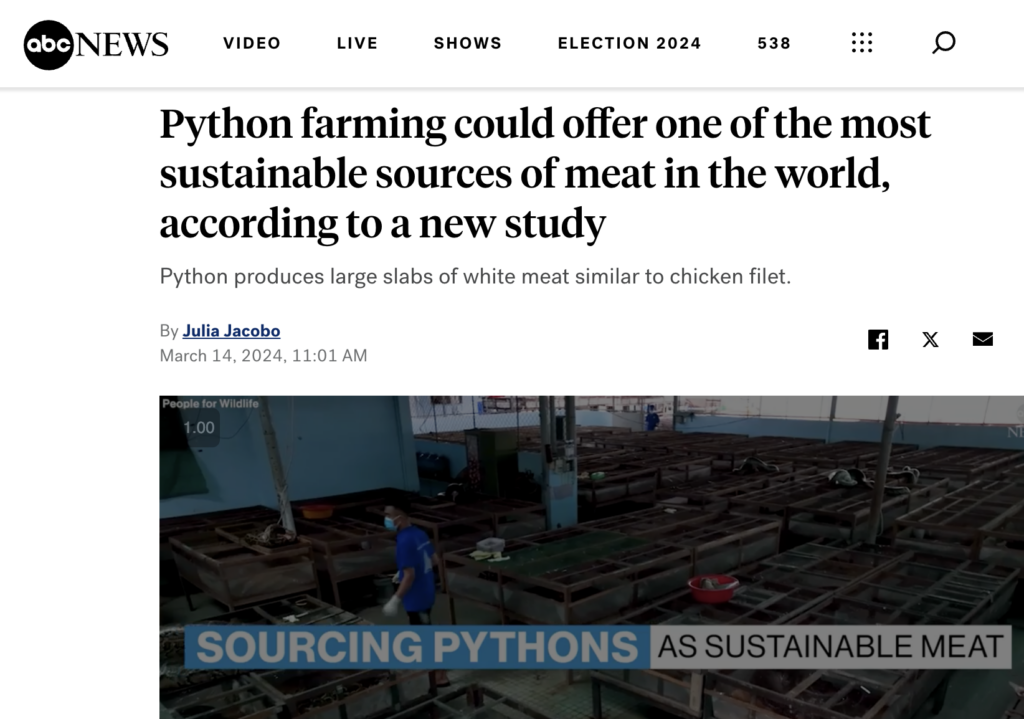By Julia Jacobo
Python farming could offer one of the most sustainable sources of meat in the world, according to a new study – Python produces large slabs of white meat similar to chicken filet.
Scientists are learning more about what sources of meat could serve as more sustainable alternatives to beef, pork and chicken.
Python meat could offer a form of meat much less carbon intensive than the current options, according to researchers who studied farms in Southeast Asia for two species of pythons — reticulated and Burmese — for 12 months.
Farmed python meat may offer a more sustainable alternative to other farmed meat because they can reproduce rapidly, even when food is not abundantly available, according to a study published in Scientific Reports on Thursday.
Pythons have an “extreme biology and evolutionary slant toward extreme resource and energy efficiency,” Patrick Aust, conservation specialist at nonprofit People for Wildlife and co-author of the paper, told ABC News. Since pythons are an “ambush predator” that chooses prey up to 100% their own weight, they can survive for prolonged periods of time between meals, Aust said.
“These animals are extremely good converters of food and particularly protein,” he said. “Literally, they are specialists and making the most of very little.”
The pythons were fed on a weekly basis a variety of locally sourced proteins, such as wild-caught rodents and fishmeal, and were regularly measured and weighed over a 12-month period, according to the paper. The authors found that both species of python grew rapidly — by up to 46 grams per day — with females seeing higher growth rates than males.
Pythons are also able to survive extreme events, Aust said. When supply chains get disrupted — as displayed during the COVID-19 pandemic — it can have a “catastrophic impact” on global livestock systems.
“During COVID-19, there were a large number of chickens and pigs that had to be culled because there were minor disruptions in supply chains,” Aust said. “Farmers couldn’t handle even that disruption.”
“They can pick up at the end of those periods,” he said.
The world is in need of high-quality protein with much less of a carbon footprint — especially as the effects of climate change continue to worsen, the researchers said.
“We really are running out resources, whilst at the same time, the demand for high quality nutrients is going up,” Aust said.
…
While Aust and his family regularly eat python meat — often fried with a “nice crispy crunch” — he added that it will take a long time for the Western world to culturally adapt to the thought of eating snakes.
“This isn’t going to be a cure-all for our protein needs, but perhaps will play an important role in the future in terms of acceptability palatability in the Western palate,” Aust said.
…
“Pythons can feel pain and fear, and they don’t want to be slaughtered any more than a cow, pig, chicken, or dog does,” Danielle Katz, PETA senior director of campaigns, told ABC News in a statement. “Experts agree that vegan eating is crucial for stopping the climate catastrophe in its tracks, so adding more animals to the already billions who suffer and die for food every year would be as misguided as it is cruel.”



